Life After the Fellowship
How the RWJF Health Policy Fellows Program Helps Participants Advance Their Careers
The Robert Wood Johnson Foundation (RWJF) Health Policy Fellows Program is often described as a transformational experience offering fellows the chance to envision their career paths from an entirely different angle. The experience is unique for each fellow—perhaps leading somewhere they never expected, or perhaps allowing them to look at their fields with new perspectives and create critical change.
For prospective applicants to the program, learning from alumni about the incredible projects they worked on during their fellowship is likely a big motivator. But finding out what kind of opportunities can be in store on the other side of the experience is just as inspiring. Below, five alumni share how the program had an impact on their careers.
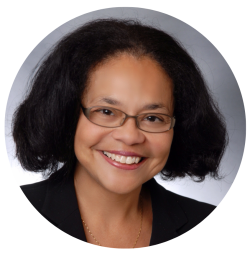
Kimberlyn Leary, PhD, MPA (Class of 2014-2015)
Kimberlyn Leary fulfilled her interest in focusing on national policy after the fellowship through service in the White House working to advance mental health care and equity. “I wanted to learn how to deliver change at the national level, and that’s where my career pivoted after the fellowship. Everything I am doing and have done since the fellowship has been focused on cross-boundary collaboration, innovation at scale, and delivering equity at scale,” Leary said.
Leary shared just how much of an impact her fellowship experience had in charting her professional path. “Quite frankly, I would not have had the opportunity to work in the Biden administration, helping to implement the president’s executive order on equity, if I hadn’t had that learning opportunity in the Obama administration during my fellowship.”
David Keahey, PA-C, MSPH (Class of 2015-2016)
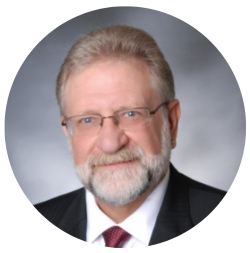 David Keahey became Chief Policy and Research Officer for the Physician Assistant Education Association (PAEA) after completing his fellowship. “I would not have been able to perform that position with any degree of success without the RWJF fellowship experience,” he said. His participation in the fellowship not only uplifted him, but also helped to advance the physician assistant (PA) field. Keahey leveraged what he learned to develop a health policy fellowship for the PAEA, in which PA students learn from expert speakers and go on Capitol Hill visits. He tells them: “Always be reaching just beyond your grasp. Not just what’s close, but beyond your grasp. Because you will surprise yourself as to what you’re capable of doing.”
David Keahey became Chief Policy and Research Officer for the Physician Assistant Education Association (PAEA) after completing his fellowship. “I would not have been able to perform that position with any degree of success without the RWJF fellowship experience,” he said. His participation in the fellowship not only uplifted him, but also helped to advance the physician assistant (PA) field. Keahey leveraged what he learned to develop a health policy fellowship for the PAEA, in which PA students learn from expert speakers and go on Capitol Hill visits. He tells them: “Always be reaching just beyond your grasp. Not just what’s close, but beyond your grasp. Because you will surprise yourself as to what you’re capable of doing.”
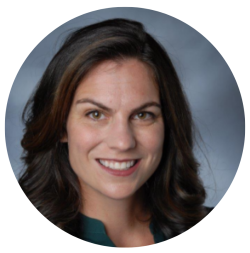 Carrie Colla, PhD (Class of 2017-2018)
Carrie Colla, PhD (Class of 2017-2018)
Carrie Colla joined the Congressional Budget Office as Director of the Health Analysis Division after her time as a fellow. Colla said she would have been unlikely to get the job without the fellowship, which gave her the knowledge she needed to be successful in the role. “There are a lot of things that I learned in the fellowship that would have been hard to learn without an experience on the ground,” she said, adding that it is one thing to read about something like the budget reconciliation process, for example, but quite another to live it, gaining a “nuts and bolts” understanding of how it works.
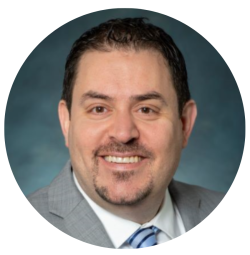 Joseph Sakran, MD, MPH, MPA (Class of 2019-2020)
Joseph Sakran, MD, MPH, MPA (Class of 2019-2020)
For surgeon Joseph Sakran, the fellowship journey highlighted ways his experience could have an impact outside of the operating room. He explained: “Clinicians, for many years, looked at our function as being at the bedside. And while I love what I do and taking care of patients and operating and being able to make one methodical decision after the other to save someone’s life is amazing, there’s a role for us beyond the bedside. And that role can be critical because it goes from impacting one patient at a time to impacting populations… Whether it’s gun violence or racism or health inequities, or immigration or climate change, health care is interconnected, in what we do, and the social issues our country is facing.” Sakran works to promote responsible gun ownership and safety, including by taking his message to publications like Scientific American and testifying before Congress, most recently to support the Bipartisan Safer Communities Act.
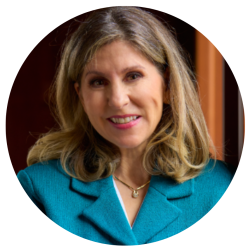 Judy Schaechter, MD, MBA (Class of 2020-2021)
Judy Schaechter, MD, MBA (Class of 2020-2021)
Judy Schaechter took on the role of President and CEO of the American Board of Pediatrics after her fellowship. There she tackles overarching issues such as quality of care, training, mental health, and the pediatric workforce. Schaechter shared that the RWJF fellowship was “definitely helpful” in securing her role. In reflecting on her path, Schaechter says she “benefited from the insight, the planning, the caring, the generosity, the sacrifices that other people made.”
The experiences of these five alumni give an inside look at how the RWJF Health Policy Fellows Program influences the career trajectory of participants and opens new opportunities. Fellows have the opportunity to gain skills and build networks that help them move into new positions and take on challenges that expand the breadth of their knowledge. No matter what steps alumni choose to take next in their careers, the fellowship helps them get there.
About the RWJF Health Policy Fellows Program
Learn more about RWJF Health Policy Fellows by following us on LinkedIn! For more information about the upcoming fellowship application, visit our website.
We appreciate your support in building a strong and diverse network leaders and maintaining a workforce skilled in health policy. Email info@healthpolicyfellows.org for questions about program opportunities.
